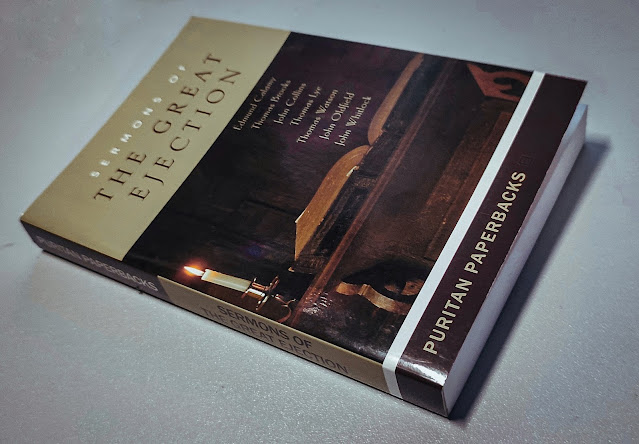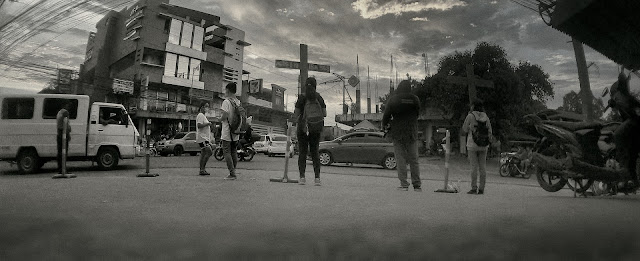Sermons Of The Great Ejection
My long sought after title.
A fine introduction to Puritan preaching, this little book also recalls one of the great turning points in English Christianity for these sermons were preached on the Farewell Sunday in August, 1662, when two thousand ministers left the national Church for conscience sake. Much has been written on that Great Ejection, but nothing is more important than to hear the ejected speak for themselves. Their watchword was:
I preach as never sure to preach again,
And as a dying man to dying men.
The Act of Uniformity prescribed that any minister who refused to conform to the Book of Common Prayer by St Bartholomew's Day (24 August) 1662 should be ejected from the Church of England. This date became known as 'Black Bartholomew's Day' among Dissenters, a reference to the fact that it occurred on the same day as the St Bartholomew's Day massacre of 1572.
Oliver Heywood estimated the number of ministers ejected at 2,500. This group included Richard Baxter, Edmund Calamy the Elder, Simeon Ashe, Thomas Case, John Flavel, William Jenkyn, Joseph Caryl, Thomas Brooks, Thomas Manton, William Sclater, Thomas Doolittle and Thomas Watson. Biographical details of ejected ministers and their fates were later collected by the historian Edmund Calamy, grandson of the elder Calamy.
Although there had already been ministers outside the established church, the Great Ejection created an abiding concept of non-conformity. Strict religious tests of the Clarendon Code and other Penal Laws left a substantial section of English society excluded from public affairs, and also university degrees, for a century and a half. Culturally, in England and Wales, nonconformism endured longer than that. Source: Wikipedia
Within five years of the ejection of the two thousand Non-conformists, London was twice laid waste, first by pestilence, and then by fire. But other calamities followed, more lasting and far more terrible. Religion in the Church of England was almost extinguished and in many of her parishes the lamp of God went out.
J. B. Marsden, The History of the Later Puritans.



Comments
Post a Comment